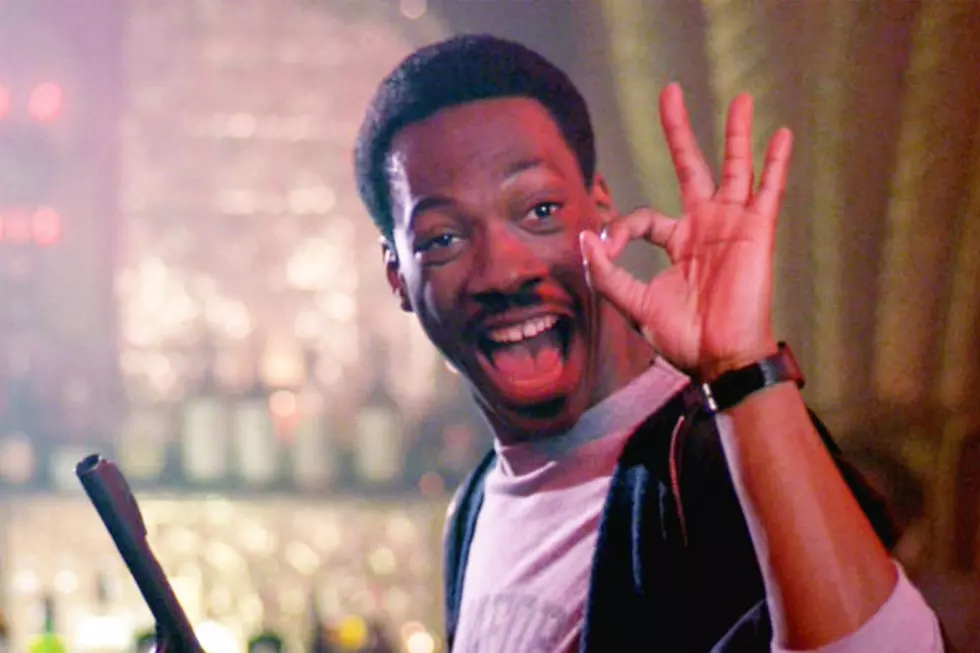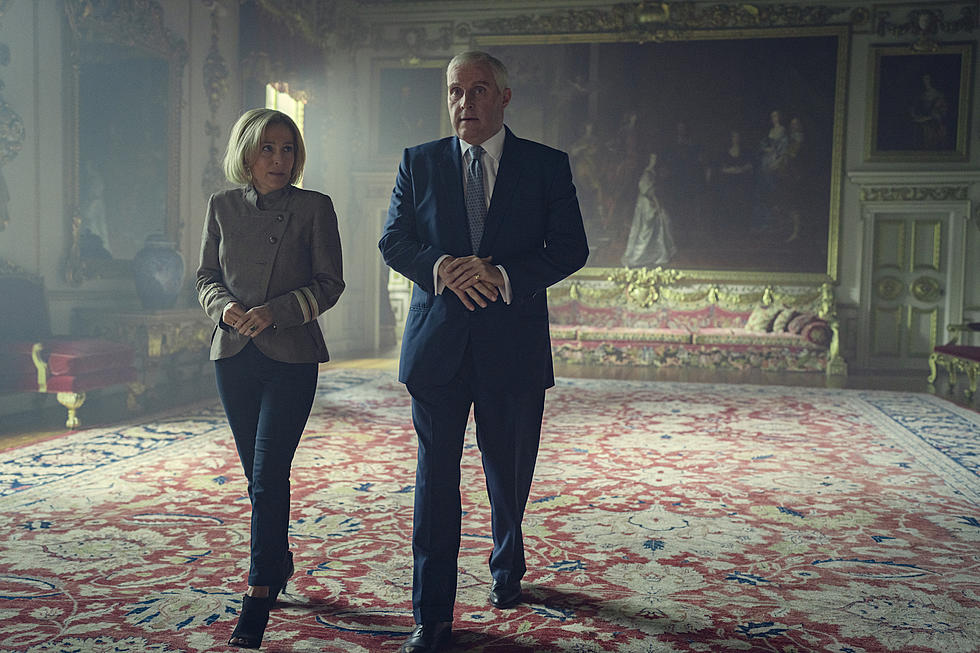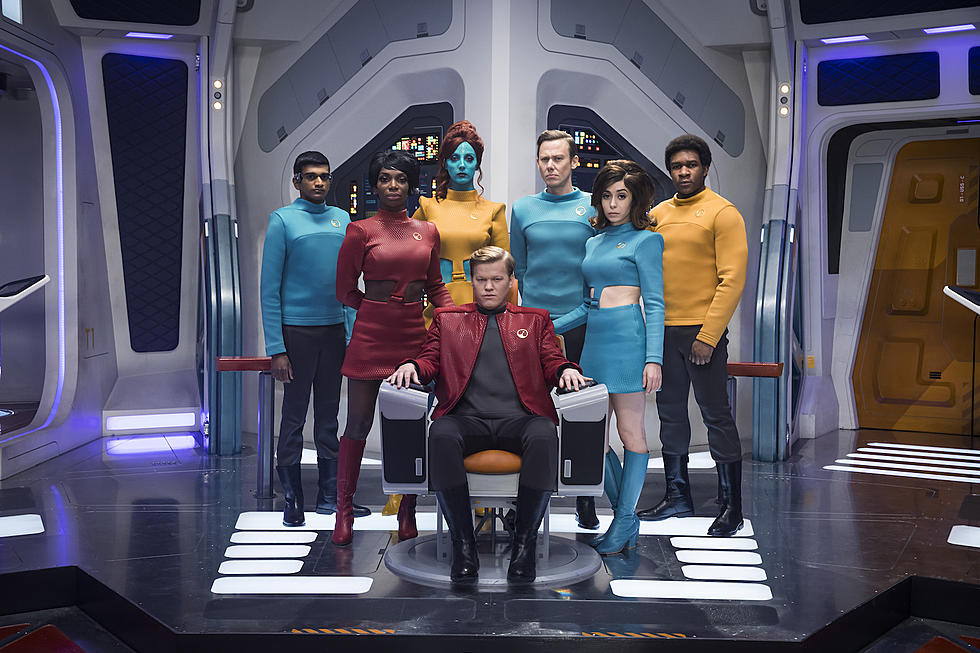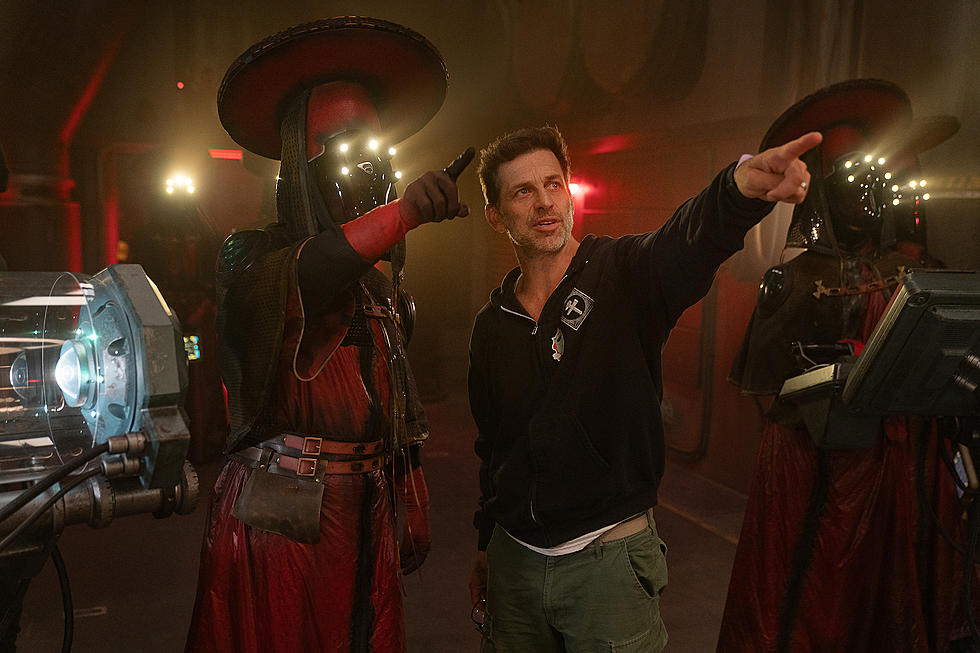
Nat Wolff Made a Real Death Note (and Then Burned It) for Netflix’s ‘Death Note’
In Adam Wingard‘s Death Note, an angsty teenager with a revenge plot quickly becomes a world-famous vigilante. When Nat Wolff’s Light Turner stumbles upon a mysterious notebook, he meets a shadowy death god named Ryuk (voiced by Willem Dafoe) who reveals Light has the ability to kill anyone by writing their name inside the so-called “Death Note.” First he uses it to murder the man who destroyed his family, but eventually Light’s curiosity turns to obsession as he and his girlfriend Mia (Margaret Qualley) use the Death Note to go on an evil-cleansing killing spree.
Earlier this month I caught up with Wolff to talk about leading the Netflix adaptation of Tsugumi Ohba’s manga series, which relocates the story from Japan to Seattle. Wolff told me that he made his own Death Note in preparation for the movie – and later burned it to hide its secrets – and what he’d want to see if Netflix makes a sequel.
Were you familiar with the manga series or anime beforehand?
Vaguely. I knew it through my buddy, Justice, who was a huge fan of it, and my two little cousins were crazy about it. So I’d been hearing about it for a year. And then when I read the script and heard Adam was doing it, I was already really excited about the opportunity, but I thought I should really delve deep into it before I agreed to be part of it. So I watched the anime and read the mangas. I watched – they actually made Japanese film versions of the anime. And I thought, “Oh this is going to be honoring the story but it’s not going to be anything like anything that’s already been done.” Which would be kind boring for me and, I think, for the audience.
Did you base your character much on those original versions of Light? Or did you focus more on the Light written in the script?
I mean, you gotta be careful with basing too much off the anime. I guess in the anime Light was kind of like a megalomaniac and he didn’t have any ... he didn’t worry about anybody’s feelings or anything. And then in this version he kind of starts off more as an outcast and I think it’s true that a lot of time outcasts will try to deal with being an outcast by trying to get control in some negative way. So I thought this was an interesting one.
He does start out as an outcast who’s trying to fight a bully in the beginning, but the Death Note becomes his way of wielding power over others.
Right. Well I think it starts off as this immature kid who has like, such a black and white view of the world, but then as the story progresses, he starts to realize that he’s not the good guy. I think to anybody older who’s lived a little realizes that he’s in the wrong, but to him he’s in the right and for some reason you’re like – any of those great movies like Taxi Driver or any of those movies where you have an antihero – if you see somebody onscreen who thinks that they’re doing the right thing, even if it’s not right, you can sort of empathize with them, you kind of feel like you become them. Then, by the end of the movie, he’s totally shifted. He realizes it’s gotten out of control.
And I was surprised – as as soon as I got the role, I was like, “Well I’d never be able to write any names in the Death Note. You’d have to be a psycho to do that.” But soon I made my own Death Note, I started writing and then it was just flowing off the pen more easily than you’d believe.
Who was in your Death Note?
I had to burn it. It was too bad.
Oh damn. I wouldn’t want to be named in that.
You were. This is an intervention. [Laughs]
What do you think led Light to become a vigilante?
In this film version, I think it has to do with the fact that he’s an outcast and doesn’t seem to have any control over his world, which is very common for teenagers who feel like things sort of happen to them. You know, when you’re a kid you become accustomed to not being in control and you’re okay with that. And as soon as you get older, you start fighting all the powers that be so you can’t get some semblance of control and this is sort of an extreme version of that.
I think the way that Mia and Light bond is the same way that a way that a lot of high schoolers bond over sneaking off and smoking pot together, or doing something that’s not considered good and kind of like testing each other, testing the limits. And in this movie they test each other by killing bad guys, or who they think are bad guys.
At one point his father asks him if he’s the lesser of two evils. Do you think he is? Is he trying to use this ability to do better or is he headed in more of an evil direction?
Honestly, I think he just sort of sees that it’s really complicated. But that would be something I would be excited to see if they did another movie. Because in the anime L and Light bond up and they start working together to take down bad guys and stuff. So they kind of become more like good guys.
Would you return for more sequels?
Yeah, I would.
Do you have ideas for what you’d like to do in the sequel that you couldn’t do in this movie?
Maybe find some way around having my hair blond because that was a year of trying to get it back to my normal color. So maybe I’ll be shaved-head Light.
You’re in some pretty cool visual sequences in this. What was that like to shoot the detention scene with the room exploding around you?
I had never done anything where I was reacting to stuff that wasn’t there, and I was really scared about that. Now I have so much admiration for these action stars who are reacting to things exploding that aren’t actually exploding because it’s such a skill. In some ways I find it much easier to just act with another person across the table. I’m so used to that, but you’re not really used to seeing a demon god explode a classroom. That’s new to me.
Was it tough to get into that and react to a green screen in those moments?
It was, but at a certain point you just kind of have to play the fiddle and jump in. For me it was just about just going for it, not being embarrassed.
Willem Dafoe has such a distinct voice that’s great for this character. But were you responding to his recorded dialogue on set, or was it mostly you and Jason Liles in the mo-cap suit?
Later on, I was listening to his voice. It was a mix. I’d be acting with Jason, this big guy – poor guy who’d sit in the suit all day and he couldn’t move his hands to eat so I had to feed him tuna on crackers and stuff. He’s real good with his body and Willem is you know, obviously a great actor, but also such a distinct voice so as soon as they cast him I thought it was going to be amazing.
This story has a bit of a message about what happens if political power is put in the hands of youth. Did you find a connect between that and the real world in any way?
I guess it would be that sometimes when people are struggling to find their place and have some kind of control over their lives, their behavior gets worse and worse. I think a lot of rage comes from just trying to control your environment. I think in this movie, that’s what so many people respond to. I think a lot of people have a lot of inner rage and to have this power is a lot of people’s wish fulfilment. But this particular movie, I think it’s showing that it’s a good thing that not everybody has a death note. [Laughs]
If you had a Death Note in real life, an actual one, what would you use that power for?
I would give that book to somebody else because I’m not – as I saw, by my own practice – I’m not ready for that power.
Death Note is now available on Netflix.
More From ScreenCrush









